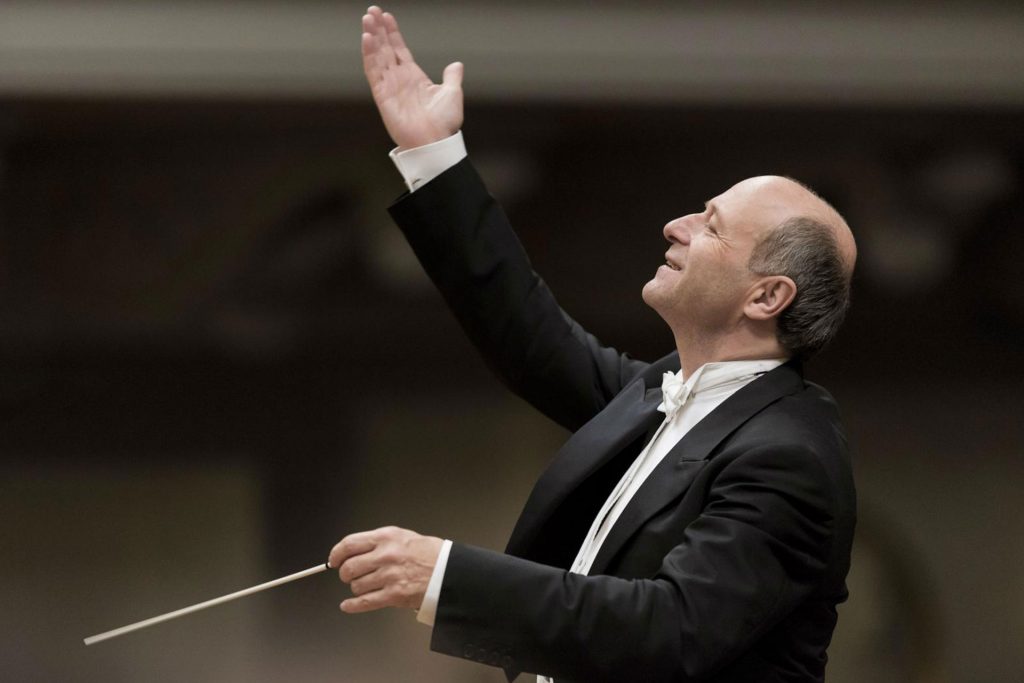Fischer leads BFO in a superficial traversal of Mahler’s depths

On paper, it promised to be a journey from death and despair to renewal, as Ivan Fischer and his truly great Budapest Festival Orchestra performed Gustav Mahler’s Kindertotenlieder and Symphony No. 5 Monday night in David Geffen Hall.
But the glossy superficiality of it all, the utter lack of feeling and the overabundance of sensationalism, made a mockery of the very reasons Mahler composed these pieces.
Kindertotenlieder—songs on the death of children—begins with the sun rising on a mother who has lost her child in the night, while Symphony No. 5 ends in glorious sunlight after a wrenching, death-haunted journey. The notes were all there and played at the highest level of technical skill. But the expression at the core of this music—sorrow, rage, and the desperate concentration one needs to pull themselves through unimaginable grief and hardship—never disturbed this notion of Mahler as a luxurious orchestral experience.
Gerhild Romberger sang the Kindertotenlieder. While listed as a contralto, she lacked the uncanny deep timbre of that rare instrument yet made up for it with a graceful, easy loveliness. Perhaps it was the ease of her production and phrasing, and the way the manner of the performance spotlit both her and the orchestra, that separated her so from the music.
Kindertotenlieder is understated in the extreme; how else to express something so terrible to comprehend—and that Mahler lived through both as a sibling and a father—except by showing how much control is needed to keep everything together.
Control of emotion is one thing, demonstrating control of one’s instrument another altogether. There was a strong, prideful self-consciousness in all the playing, a “listen to this gorgeous sound.” It is a good thing to hear Mahler’s details, but the point is to show what bedeviled him, and what might bedevil us.
Romberger’s singing, and the extreme refinement of the accompaniment, emptied the music of all meaning. The level of the instrumental skill, and the fact that Fischer has more time to prepare his orchestra than any American one has, had one thinking that the music may have been rehearsed to within an inch of its life.
The Symphony No. 5 had a promising start. Trumpeter Tamás Pálfalvi played the opening fanfare with the right balance of skill and expression, and the orchestra entered with a wonderful, cataclysmic sound. The funereal step was slow, but that in itself was not a problem. The step was slow not because it bore a great weight, or any weight at all. It was all manner.
Manner accumulated and energy dissipated in inverse proportion. The Stürmisch bewegt had lots of activity, like an industrial fan blowing around confetti, and it felt just as artificial.
In the Scherzo, Fischer brought out horn soloist Zoltán Szöke to sit in a chair and play his solo from the concerto position. This did highlight his technique, and that of his section partners, but took the music further away from its heart, and making the music into a spectacle drained away all momentum. The way diminuendos morphed seamlessly into the section players, were stunning, more skillful than one is likely to ever hear again. And it all meant meant nothing.
As Fischer became more animated in stretches, the effect of his choices made him appear less as a conductor and more like a carnival barker. He achieved the impossible by making this movement, one of Mahler’s most dazzling, dull.
The Adagietto was slow and pretty, with all the feeling of a music cue for a Jaguar sedan commercial. Then the Rondo-Finale was too fast, but that was less important than that what had come before meant that it couldn’t save the performance.
Concerto Köln plays Handel, Bach, Vivaldi, and more in Alice Tully Hall, 7:30 p.m. Thursday. LCGreatPerformers.org


